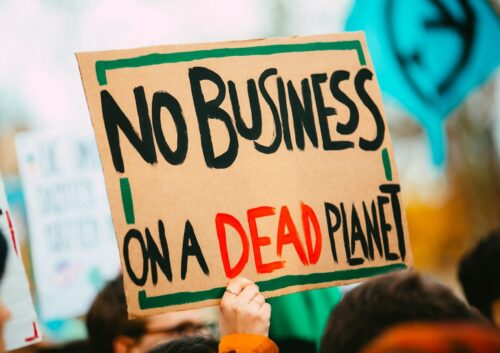
Canadian Prime Minister Mark Carney faces his first major political setback, as a member of his cabinet stepped down Thursday after Carney cut a deal with the energy-rich province of Alberta that suspends environmental rules aimed at curbing oil-and-gas carbon emissions. [emphasis, links added]
Steven Guilbeault [pictured above], who served as Canada’s culture minister under Carney and as the environment minister under former Prime Minister Justin Trudeau, said he submitted a resignation letter “with great sadness” following the government’s deal with Alberta.
In a statement, Guilbeault said Carney was dismantling climate change policies he helped implement under Trudeau, such as a cap on carbon emissions from oil-and-gas producers, clean-electricity regulations, and a zero-emissions vehicle standard.
“I remain one of those for whom environmental issues must remain front and center,” said Guilbeault, who, before politics, served as a senior executive at Greenpeace and domestic climate-change advocacy groups.
Guilbeault said he would continue to serve as a Liberal lawmaker in the government caucus.
The resignation marks the first open rift in Carney’s government, as the former central banker attempts to rewire an economy struggling due to elevated uncertainty over U.S. trade policy and hefty tariffs on key manufacturing sectors.
His government’s economic and fiscal policy is now geared toward attracting private-sector investment to develop resources, from energy to critical minerals, and to build infrastructure and new trade corridors—all in an effort to reduce the country’s dependence on U.S.-bound exports to fuel growth.
Before entering politics this year, Carney had been a leading voice, as a former central banker and business executive, urging the business world to fight against climate change.
His shift and his bid to revive investment in the energy sector have drawn criticism from environmental groups.
In a statement posted on the social-media platform X, Carney said he applauded Guilbeault’s leadership on environmental issues and is grateful for his contribution to the cabinet.
Whether in civil society or in Cabinet, Steven Guilbeault’s leadership to advance sustainability has consistently shaped a more hopeful horizon for future generations.
As Prime Minister, I have been deeply grateful for his counsel and contributions to our new government, which…
— Mark Carney (@MarkJCarney) November 27, 2025
Carney said he is committed to building a sustainable economy through ambitious investments.
“A climate strategy based solely on regulations and prohibitions will not achieve our climate objectives, not least because it will fail to generate the alignment of interests required for this historic undertaking,” the Canadian leader added.
Earlier Thursday, Carney and Alberta Premier Danielle Smith agreed to a truce following a decade-long fight between Ottawa and western Canada about the country’s environmental laws and their impact on resource development.
A pact, or memorandum of understanding, sets conditions under which a new pipeline that carries crude oil from Alberta to the Pacific Coast can be built.
Analysts said the agreement, while not legally binding, would send a signal to companies and investors that Canada is open to development in the energy sector.
In the pact, Canada agreed to suspend some environmental rules for Alberta—like the cap on emissions from oil-and-gas producers and clean-electricity regulations—should the province fulfill commitments such as adopting a tougher industrial carbon-pricing system.
Read rest at WSJ



















The MOU has some significant limitations, so it’s too soon to rejoice. For example, see http://epaper.ottawasun.com/article/281586656901785
There is light at the end of Canada’s tunnel. At last!!
Unfortunately, honesty is not Carney’s strong suit. From what I’ve read elsewhere, he’s probably glad to have Guilbeault out of his cabinet. But Carney’s still promoting the net-zero nonsense himself, so we’ll have to wait to see what’s real.